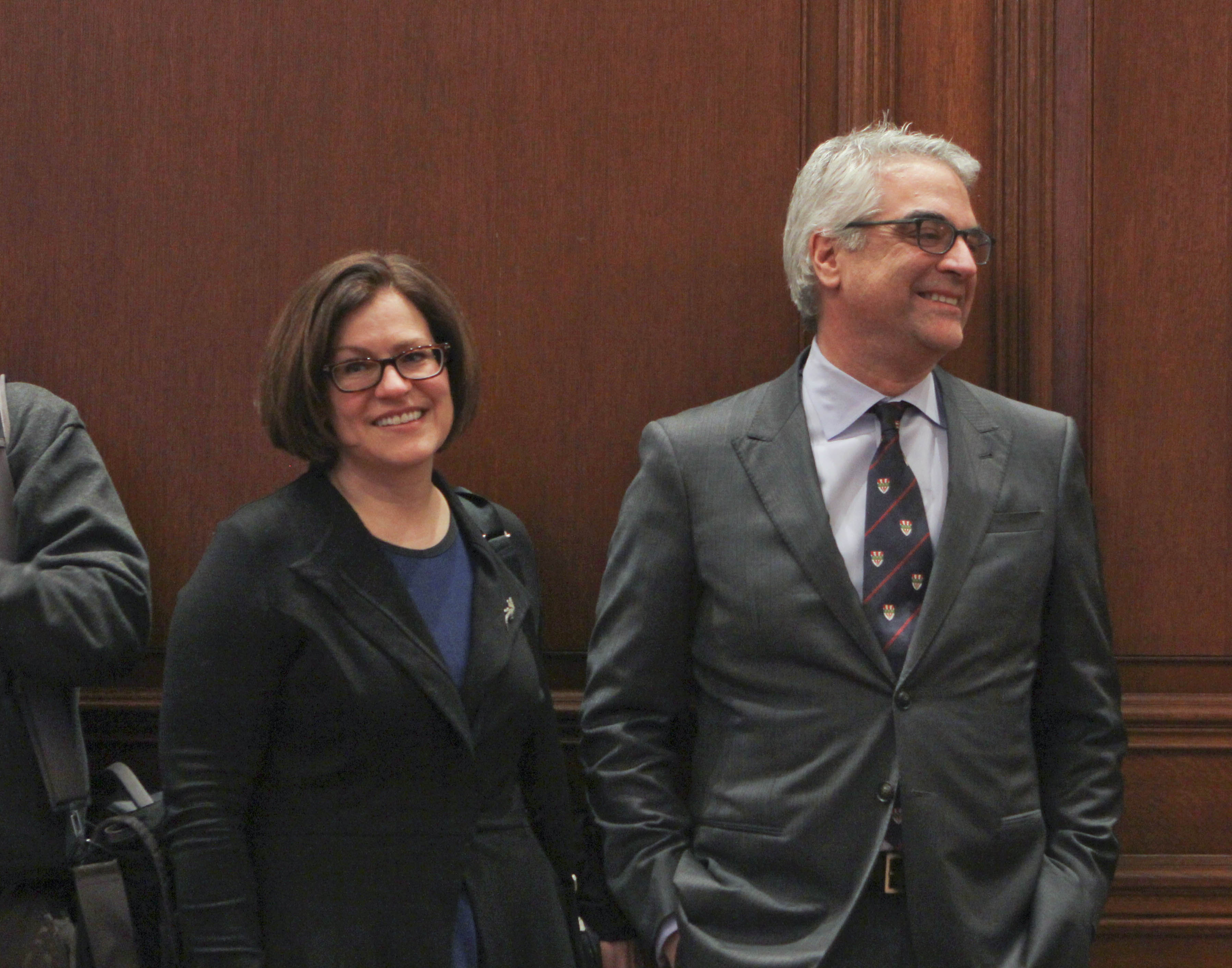
This article has been updated to reflect the version that ran in print on Dec. 7.
Erika Christakis, the associate master of Silliman College whose Halloween email to students sparked conversations about race and discrimination on campus, will no longer teach at Yale.
In an email to The Washington Post, Christakis said she cancelled her spring course “The Concept of the Problem Child” — which drew large crowds during shopping period when she also taught it this fall — in response to a campus climate not “conducive to the civil dialogue and open inquiry required to solve our urgent societal problems.”
A lecturer of psychology and early childhood development, Christakis drew ire from students last month for her Oct. 30 email to Silliman students criticizing the discouragement of culturally appropriative Halloween costumes. Her message bemoaned what she called an increasingly censorial and prohibitory climate at American universities. This semester, in addition to “The Concept of the Problem Child,” Christakis is also teaching “The Growing Child in Global Context.” She did not respond to multiple requests for comment.
Yale College Dean Jonathan Holloway said that as a lecturer, Christakis is paid per course, so she can decide whether to teach each semester. Holloway said she made the decision “on her own.”
“It makes the situation more straightforward from a [human resources] point of view,” Holloway added. “I don’t have much to add to her decision.”
In the spring, Christakis will instead spend time publicizing her new book “The Importance of Being Little,” set for release on Feb. 9. According to the Penguin Books website, Christakis is scheduled to visit five different bookstores across the country after the book’s release.
Erika Christakis’ husband Nicholas Christakis told the News that he will take a sabbatical this spring, cancelling his popular lecture “Health of the Public.”
Erika Christakis’ “Concept of the Problem Child” covered controversial issues in contemporary America. The syllabus for the course includes books on gender, race and teenage pregnancy. Nearly all the reviews of Christakis’ classes are extremely positive.
“Professor Christakis is, hands down, my favorite professor that I’ve had while I’ve been here,” wrote one student on the course’s online evaluation.
“Erika is a joy, and a generous person and pedagogue,” wrote another.
Among the demands made by Next Yale, a fledgling campus activist group that addresses issues of race on campus, was the removal of Nicholas and Erika Christakis from the positions of master and associate master of Silliman College, respectively. The demands, presented to University President Peter Salovey at his home at around midnight on Nov. 12, do not mention the Christakises’ roles as Yale educators.
On Nov. 17, Salovey and Holloway wrote that they “fully support” the Christakises’ mastership in a joint email to Silliman students.
Two open letters published last months by various professors — one supporting student concerns about racism and marginalization, and another standing in solidarity with the Christakises — gave voice to multiple sides of a heated debate over free speech, sensitivity and racism on Yale’s campus. The first letter was signed by several hundred faculty members, including the Christakises. The second, authored by physics professor Douglas Stone and signed by 69 faculty members, said those who have mounted a campaign against Erika Christakis have reduced the “educational variety” for all Yale undergraduates.
“As faculty colleagues we wish to express our strong support of the right of Erika and Nicholas Christakis to free speech and freedom of intellectual expression,” the letter stated.
In past years, hundreds of students shopped each of Erika Christakis’ classes, Stone said, adding that she planned to teach additional seminar sections this year to handle the demand. He added that attacks, not just on Christakis’ email, but on her character and integrity as well, have led to her decision not to teach. Stone said he encouraged Christakis to reconsider her decision to stop teaching after a “cooling off period.”
Although Stone said he welcomes criticism by students and faculty as part of a respectful dialogue, he said he thought the response to Christakis’ letter unfairly characterized her words as racist.
“It goes without saying that faculty using racial epithets or harassing speech … should not be tolerated or defended in any way,” Stone said. “I don’t think that is at issue in the current situation.”
Sarah Householder ’18, who is currently taking Christakis’ “The Growing Child in Global Context” seminar, said that the protests changed the energy in the classroom. Householder said Christakis became “hesitant” and “distracted” after she took a week off during the most intense student protests.
Householder added that the class had engaging, serious discussions about issues of child development around the world.
Leah Meyer ’18, who said she wanted to take “Problem Child” before graduation, said Christakis’ announcement was disappointing.
Meyer questioned Christakis’ decision to stop teaching. If Christakis feels that open dialogue and debate is important, she questioned, why is she choosing to remove herself from that dialogue?
“That, to me, is frustrating,” she said. “I’m not saying she made the wrong decision, I’m just saying that it’s unfortunate. Just because I think that she should remain on faculty and continue to teach does not mean that I condone all her actions.”
Erika Christakis is a lecturer at Yale’s Child Study Center.







